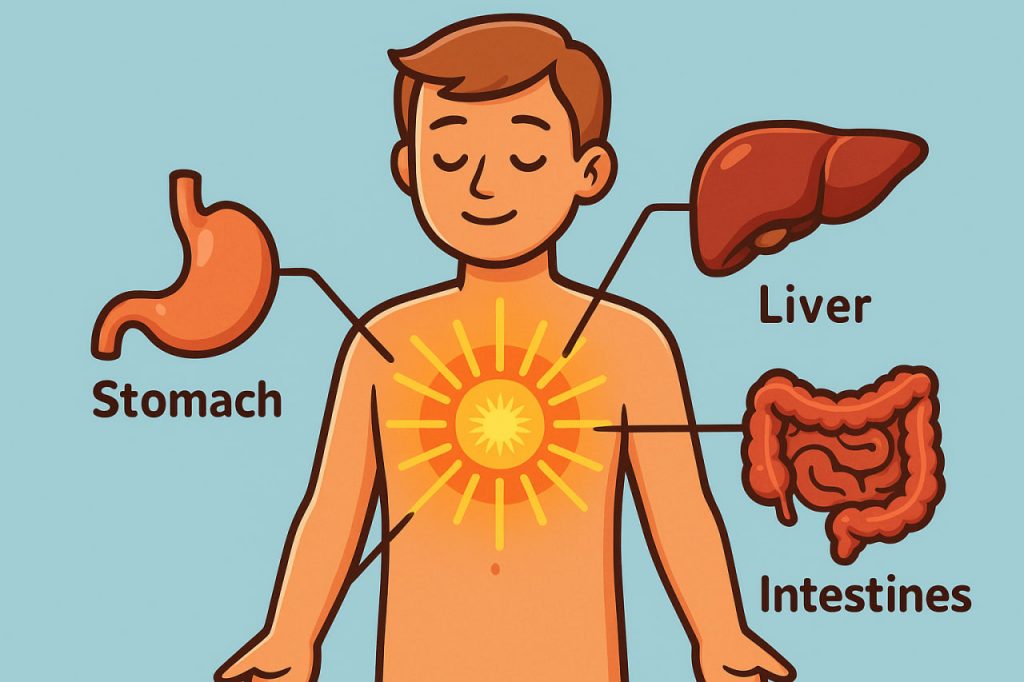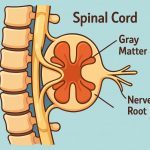The solar plexus, also known as the celiac plexus, is a dense network of nerves located in the upper abdomen, just behind the stomach and below the diaphragm. It is one of the most important centers of the autonomic nervous system, helping regulate many involuntary functions in the body. Its name comes from its star-like structure, resembling the rays of the sun.
Anatomy of the Solar Plexus
The solar plexus is made up of bundles of sympathetic and parasympathetic nerves. It lies close to vital organs such as the stomach, pancreas, kidneys, and intestines. This nerve hub connects to the brain and spinal cord, transmitting signals that control organ function without conscious effort.
Functions of the Solar Plexus
- Digestive control – regulates stomach activity, pancreas function, and intestinal movements.
- Circulatory regulation – influences blood vessel dilation and heart activity.
- Hormonal influence – communicates with adrenal glands to manage stress responses.
- Pain transmission – often referred to as the “abdominal brain,” it can transmit strong sensations, such as stomach pain or cramps.
- Stress and reflexes – plays a role in the “fight or flight” response, preparing the body to react to danger.
Why It Is Important
The solar plexus is essential for homeostasis, or balance in the body. Without its regulation, digestion, blood flow, and stress responses would be less coordinated. It is also a vulnerable spot; a strong blow to the solar plexus can temporarily disrupt breathing and cause intense pain.
Solar Plexus in Culture and Symbolism
In many traditions, the solar plexus has symbolic meaning. In yoga and Eastern philosophy, it corresponds to the Manipura chakra, linked to personal power, confidence, and energy. Its role as both a physical and symbolic center highlights its importance in human well-being.
Conclusion
The solar plexus is far more than a cluster of nerves—it is a central control hub for digestion, circulation, stress, and energy balance. Protecting its health and understanding its role can help in maintaining overall physical and mental well-being.
Some say that the solar plexus area is somehow connected to the soul, and if you’re interested in learning more about the soul and self-discovery, please feel free to leave a comment.
Glossary
- Celiac plexus (solar plexus) – a complex network of nerves in the abdomen.
- Autonomic nervous system – the system that controls involuntary body functions.
- Sympathetic nerves – nerves that activate the “fight or flight” response.
- Parasympathetic nerves – nerves that promote rest, digestion, and recovery.
- Manipura chakra – energy center in yoga associated with willpower and vitality.


